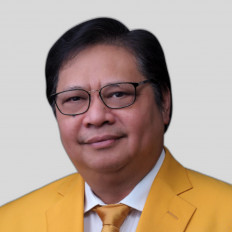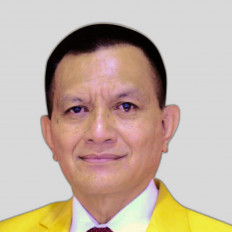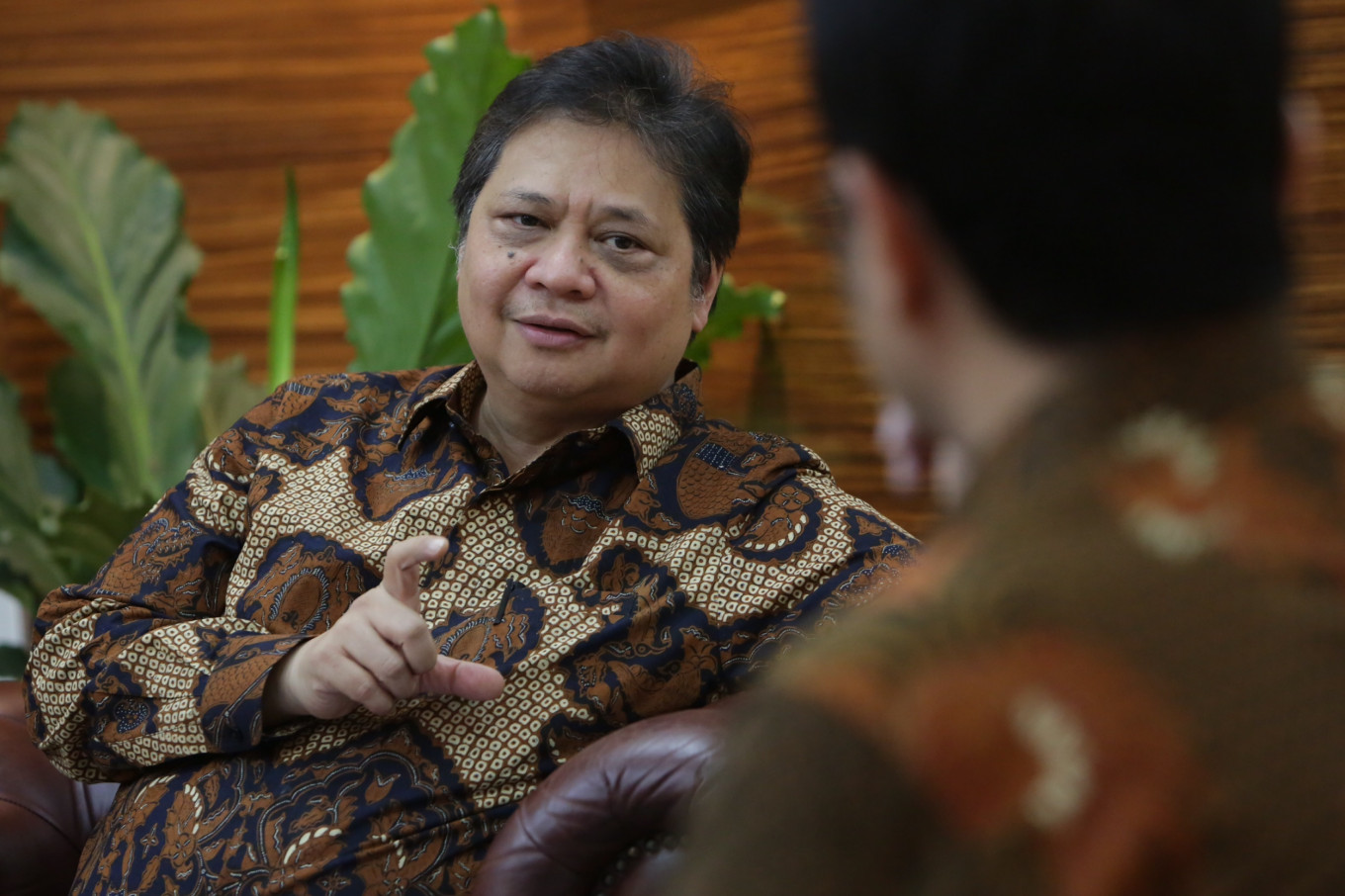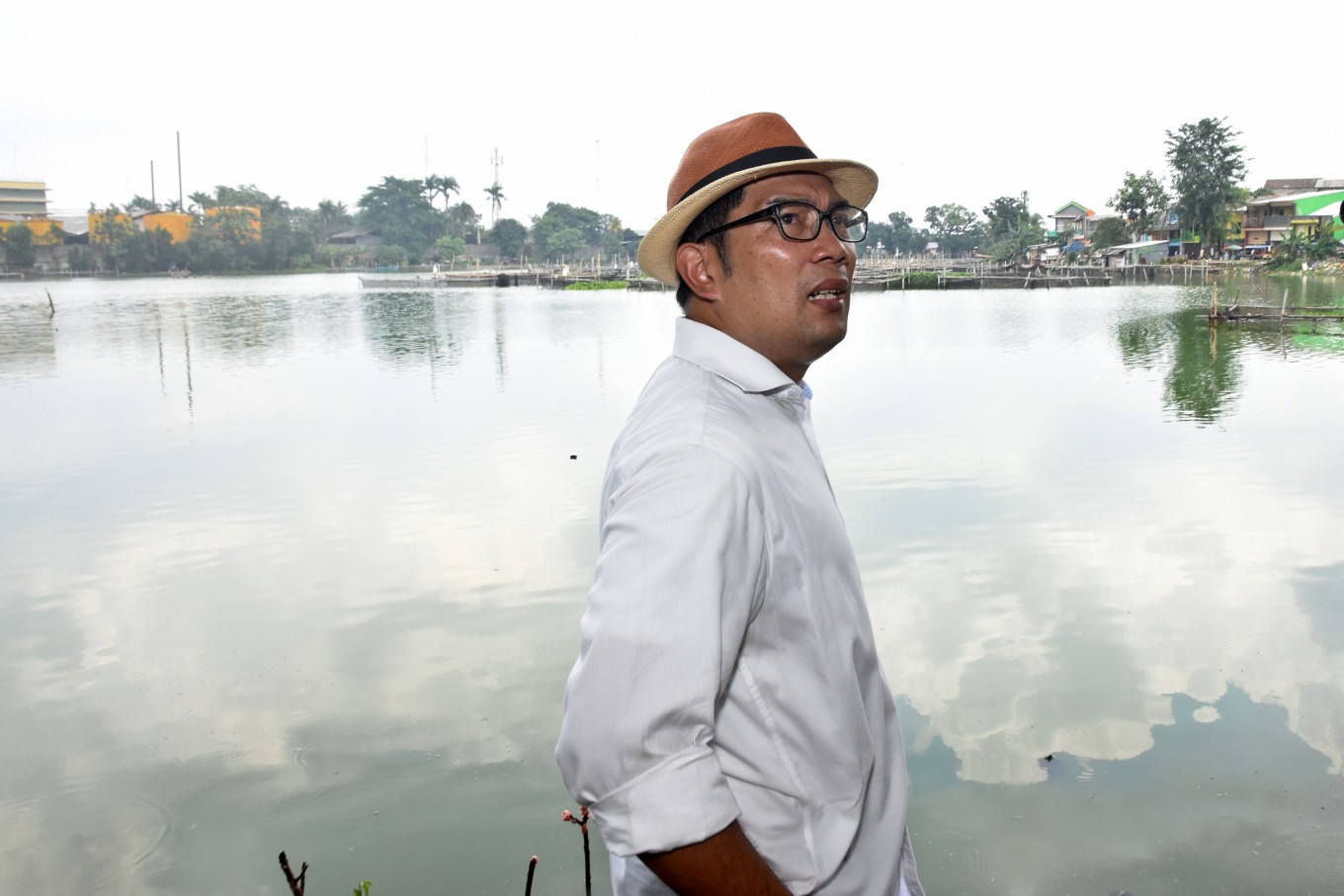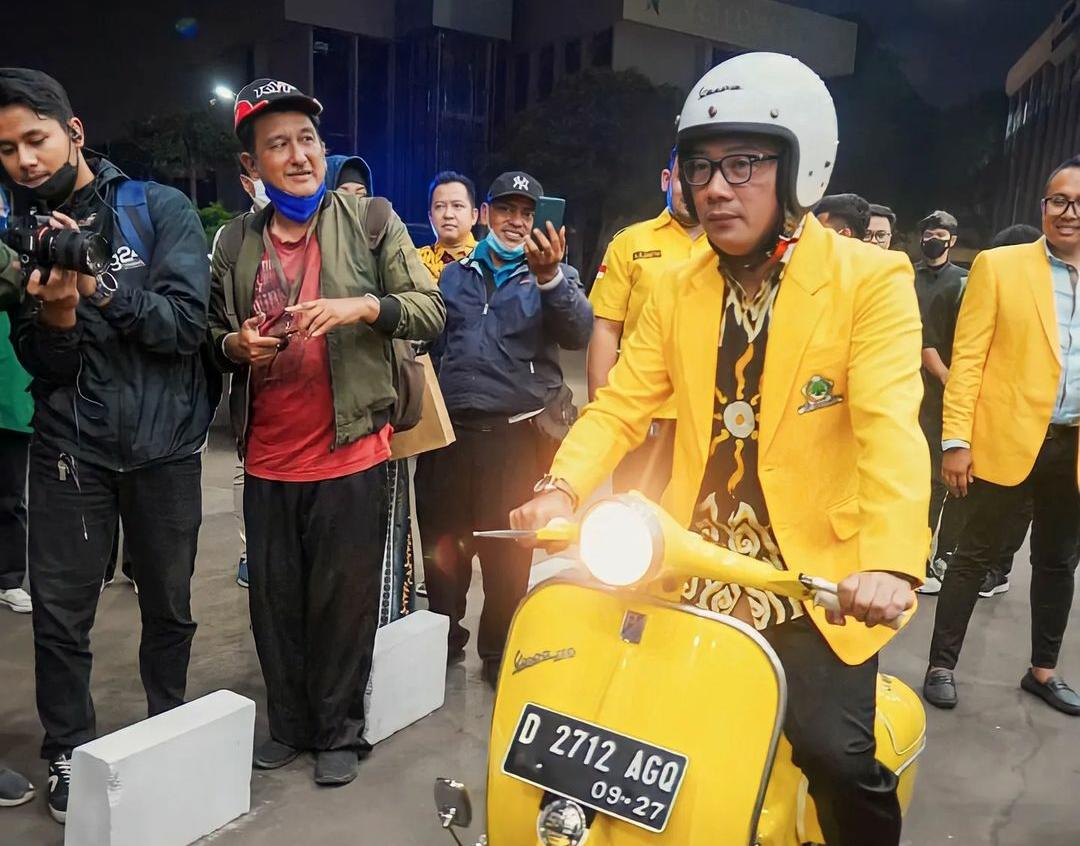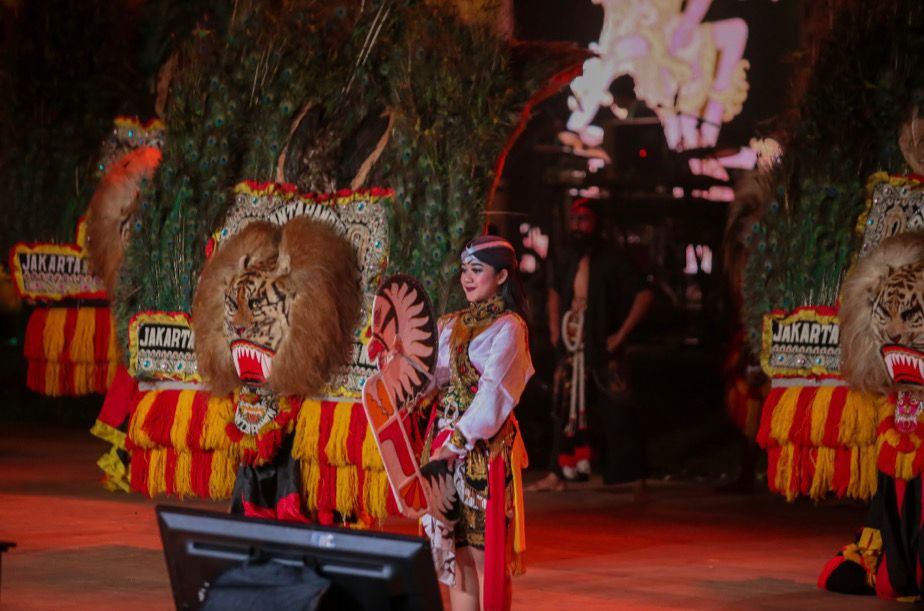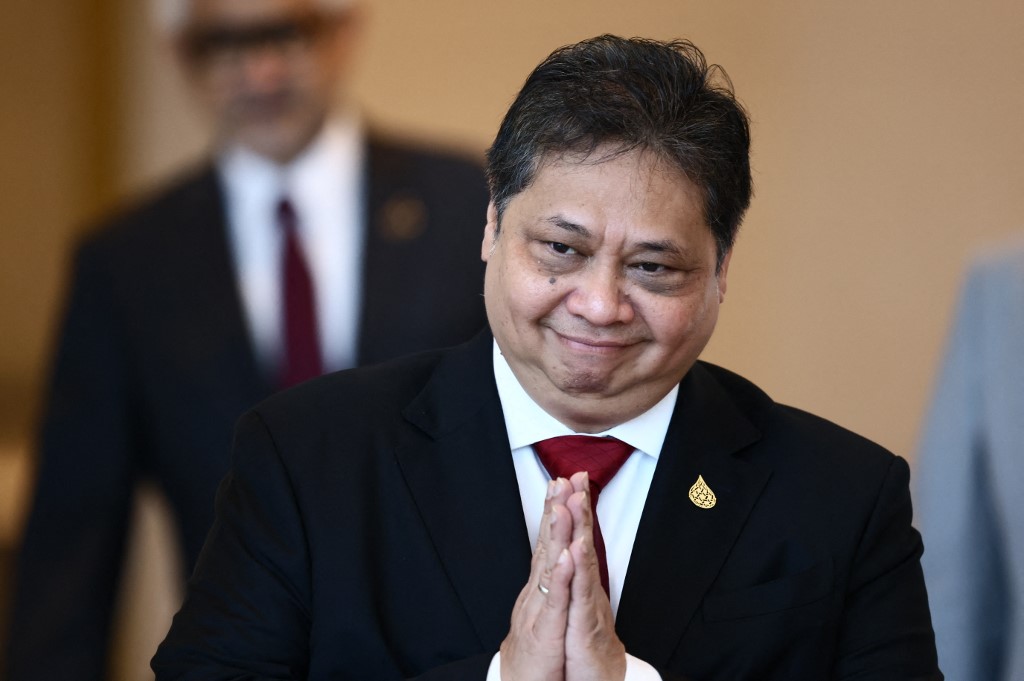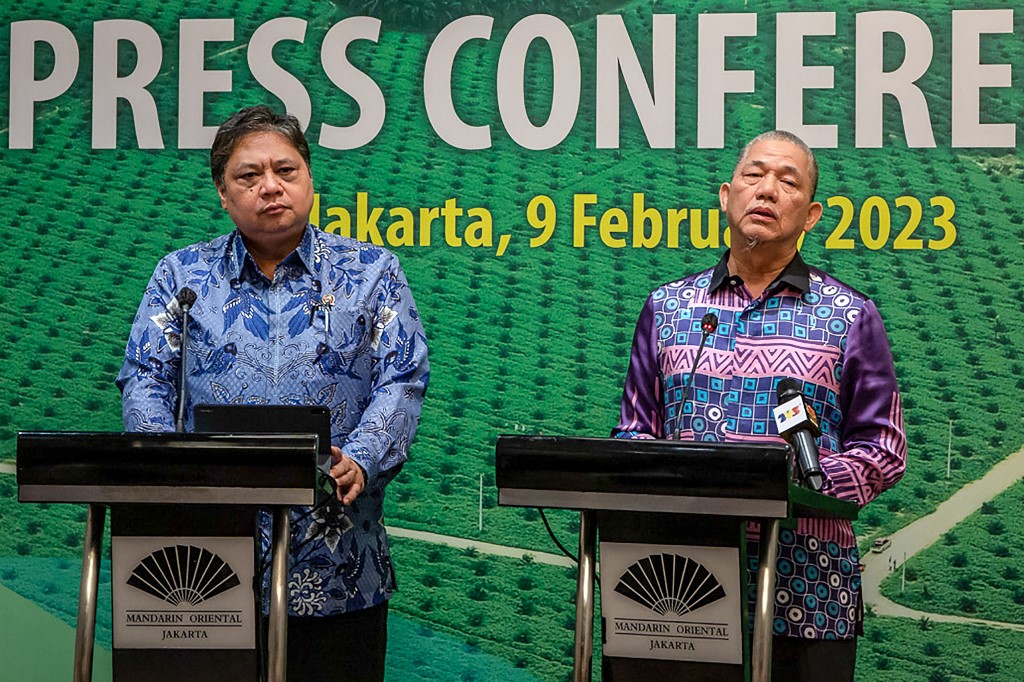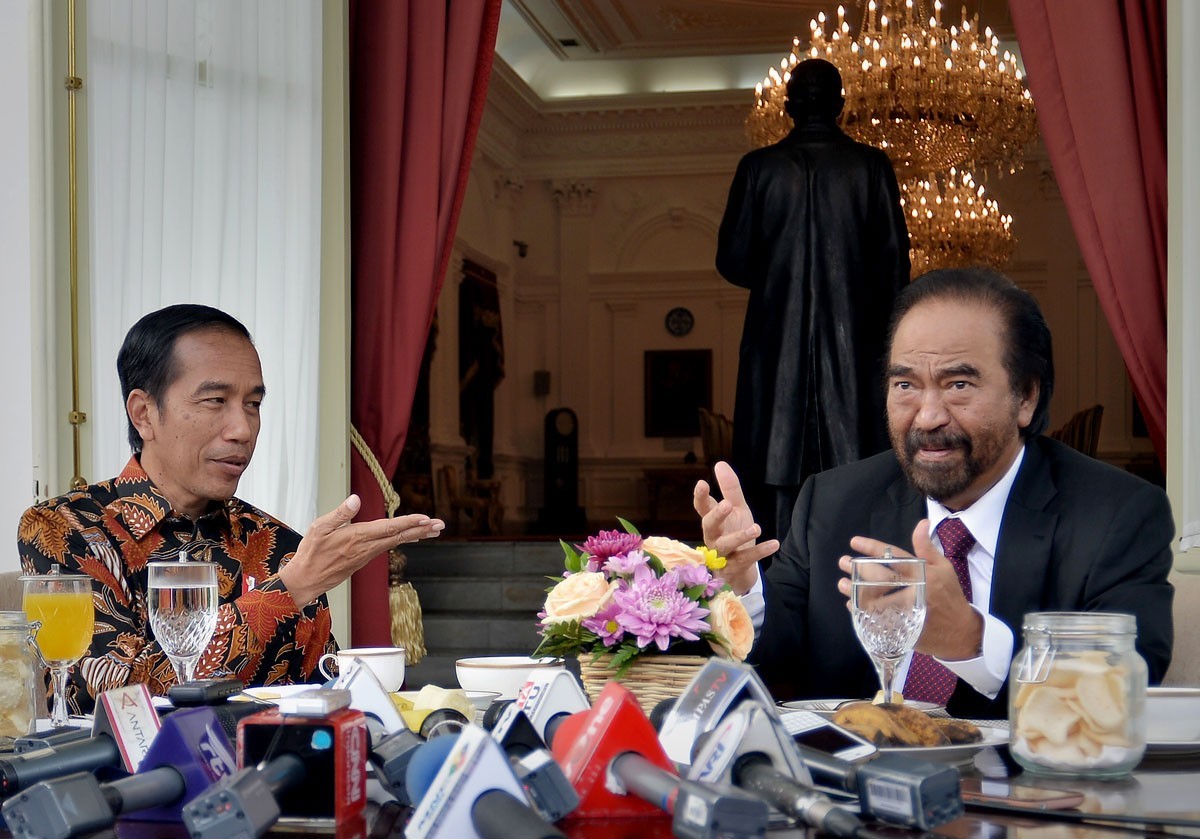Discourse: Golkar looks to field younger candidates in upcoming elections
The country’s third-largest political party, Golkar, will have to find a way to attract younger people who are expected to make up the majority of voters in the 2024 general elections
Golkar chairman Airlangga Hartarto spoke to The Jakarta Post’s Yerica Lai about the party’s efforts to attract the support of this growing voter bloc and address an ongoing plan to build a grand alliance to ensure continuity in government policy. The following is an excerpt from the interview:
JP: Golkar is one of the country’s oldest and largest parties. How has it survived multiple political crises and remained relevant after almost 59 years?
AH: Our founding fathers, including [first president Sukarno], put forward the concept of “functional groups” after the general elections in 1955 as the antithesis of identity politics. At the time, the so-called politik aliran was rampant, whether it was leaning left, right or centrist. So, Bung Karno at the time thought that the functionalists of Indonesian society should have a vessel called the Party of Functional Groups, or Golongan Karya.
We established MKGR (the Mutual Assistance Families Association), Kosgoro (the Multipurpose Organization for Mutual Cooperation) and other umbrella groups like Soksi (the Central Organization for Indonesian Employees), we gradually swapped the term “worker” for “employee” because the former was associated with communism.

Golkar is a party that continues to look out for the interests of the people, including the growing aspiration for reform. Throughout the history of our country as we know it, this may have been seen in a different light. We often hear that the Golkar that led governments in the past did not endorse reform. However, we certainly supported reform and it transformed us into the political party we are today.
It is this agility that allows us to navigate between the interests of the nation-state and those of the people. Golkar was able to reflect public aspirations and fight for what the people wanted. We certainly played an important role in 1966 and 1998, when the nation was at a crossroads.
JP: How does Golkar deal with the challenge of youth and succession?
AH: Golkar is well aware that the demographic dividend is not everlasting and that it will likely end in 38 years. For this purpose, Golkar has drafted its Vision 2045 roadmap that is also in line with what is being discussed at Bappenas [the National Development Planning Agency]. We only have 10 years to get Indonesia out of the middle-income trap. It is not an easy job, but experiments carried out in South Korea and Singapore suggest that our focus should be on developing human resources.
In early 2020, we established the Golkar Institute, which focuses on youth and is the platform we are using to offer education on leadership, public policy and knowledge to address the main challenges facing our economy and welfare. Considering our history, we feel obliged to do this.
To support this objective, Golkar has set up a regional-level institution, where we have a number of visiting lecturers from the Lee Kuan Yew School of Public Policy to help guide not only the future leaders of our country, but of ASEAN and Asia as well. We train people under 40, and anyone is welcome; they don’t have to be Golkar members. Alhamdulillah [thank God] we’ve had 11 batches already and will continue refining our efforts.
JP: Indonesia will have an election with a record number of youth voters in 2024. Around 55 percent of the voter roll will be made up of people from the 15-40 age bracket. What strategies will Golkar use to woo young voters?
AH: Many of our activities already involve the youth. Golkar encourages its members to get involved in public services. Aside from education, for instance, Golkar has also built a network of “Yellow Clinics” that operated throughout the COVID-19 pandemic to actively assist with vaccinations.
These same clinics are also involved in disaster management. We have medical personnel and ambulances at the ready and offer community services such as cataract surgery and hearing aid distribution.
I can claim that Golkar is the only party that offers public services in the form of a clinic. We have been operating in Jakarta, Surabaya [in East Java] and Semarang [in Central Java], and we’ll continue expanding all across Indonesia. No other party has anything like it.
And we are working with the Health Ministry to set up our clinics in places where public services are still lacking and health services are limited.
JP: A lot of that has to do with outreach, but what about the young stars coming through the party ranks? What is Golkar doing to introduce its younger politicians to the public?
AH: We already put them to the test in our youth organizations. Golkar has an entire younger generation of members. We have Kosgoro and AMPI [the Youth Force for Indonesian Reform]. We give these young people the opportunity to take part in the management of these mass organizations so they gain the necessary experience to lead a nation.
It isn’t enough to learn from books, so we give the youth a chance to govern. We give them the opportunity to lead, as is the case with Melki Lakalena, our member who chairs the East Nusa Tenggara Representatives Council.
JP: Can we expect young candidates to run in the legislative elections? Does Golkar have certain affirmative action quotas for them?
Yes, we are pushing for younger candidates to take part. We have quotas for women, but we let the youth compete freely for public support.
If the electoral system is closed-list [meaning that parties, not voters, get to decide who enters the legislature], then there is no system of reward and punishment, and we would slide back into the era prior to reform. We’ve opted for an open-list proportional representation system because we believe Golkar has strong members capable of working in the public’s interest.
JP: How do you attract young people to join Golkar?
AH: We convince them that one of the few real ways to serve the people and influence public policy is through political parties, and that such efforts will get leveraged when the party obtains seats in the House of Representatives. Golkar is one party that always wins seats.
JP: Will the work of the current government be continued beyond 2024? Will it become Golkar’s own platform?
AH: Golkar’s economic platform is value-added. We will push the northern coast of Java to become the North Java Corridor, a super economic corridor. We have started with various industrial areas and we will continue the project because naturally, infrastructure in the north is already connected. There are already many ports and the area has seen much development.
Secondly, the key to unlocking our demographic dividend is human resources development. No country escapes the middle-income trap without quality human resources.
JP: Are issues like this subject to discussion whenever Golkar is looking for coalition partners?
AH: Yes, now Golkar and other parties are preparing a long-term development plan for 2025-2045. This has been discussed with President [Jokowi] and we will soon submit a draft to the House.
This plan will be the platform used by the future president, so they won’t deviate from our collective interests. This is the agreement of the grand alliance. Indonesia is a big nation. The more parties that join, the merrier.
JP: Is there really any appetite to continue the success of the current ruling coalition beyond 2024?
AH: One single political party cannot win 50 percent of the votes. American democracy has two parties. China’s so-called democracy has one party. This is Indonesia. We had nine parties contesting in the 2019 general elections, and now at least 17 parties are set to run in 2024.
JP: Will there be new additions to the grand alliance?
AH: There will be some non-legislature parties that will join us, such as the PSI and Perindo.
JP: How has communication with the ruling PDI-P been?
AH: Good.
JP: The PDI-P has said it is open to partnering with anyone for the upcoming election. Can we expect them to join the grand alliance?
AH: Of course, anyone can join. The question always becomes who will lead the grand alliance? Personally, I believe it should be the one that came up with the idea of [forging the alliance] in the first place – the alliance’s founders.
Discourse: Golkar looks to field younger candidates in upcoming elections
The country’s third-largest political party, Golkar, will have to find a way to attract younger people who are expected to make up the majority of voters in the 2024 general elections

| Chairperson | |
| Secretary-general | |
| Political strength: |
The Golkar Party maintains a dominant base in South Sulawesi and in Riau, but the party has begun to face significant challenges from two Golkar offshoots, Gerindra and NasDem. |


